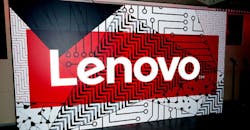Lenovo Takes Control of Fujitsu PCs as Revenue Tops Estimates
Lenovo Group Ltd. unveiled plans to take over Fujitsu Ltd.’s personal computer business for at least $157 million after posting its strongest revenue growth in two years amid signs the PC market is stabilizing.
China’s largest PC maker reported a 5% jump in revenue to $11.8 billion in the quarter ended September, surpassing projections for $11.3 billion and marking the biggest rise since the same period of 2015.
Net income fell 11% to $139 million, which was bolstered by accounting gains. Lenovo rose as much as 5% in the afternoon, erasing year-to-date losses.
Lenovo is struggling to find growth in its key divisions of personal computers, smartphones and servers. While it lost top spot in PCs to HP Inc., the market shrinkage of the past few years is easing and Chief Executive Yang Yuanqing is taking costs out of a mobile business that’s made little progress since buying Motorola for $2.9 billion.
On Nov. 2, the company announced it will buy Fujitsu’s client computing division for at least 17.85 billion yen (US$157 million), adding the Japanese name to its portfolio.
“A healthier PC market may finally aid Lenovo’s platform almost as much as it has HP or Dell,” Anand Srinivasan and Wei Mok, analysts at Bloomberg Intelligence, said before the release. “The server and mobile platforms need structural fixes.”
PC shipments climbed 17% from the previous quarter, allowing Lenovo to arrest market share losses. The company’s struggling smartphone division also made headway into Latin America and Western Europe.
“Lenovo’s business lines remain weak in the past quarter and now it has cash flow difficulties,” said Qian Kai, an analyst with CICC. He noted that Lenovo gained more than $100 million in net income from tax rebates. “I don’t foresee Lenovo turning around its smartphone business. It lags far behind market leaders in China and in the markets like India where they did well, the challenge is growing thanks to companies such as Xiaomi.”
The company continues to face rising costs for components such as memory chips. COO Gianfranco Lanci previously said he expects costs for essential components such as memory chips to keep rising throughout the rest of the year, albeit at a slower pace.
“Our mobile business turnaround is still in progress,” Yang said.
While the 2005 acquisition of International Business Machines Corp.’s PC division paid off by lifting Lenovo closer to the top of the market, deals in 2014 for IBM’s low-end server unit and Motorola haven’t gone as smoothly. It’s now re-enlisted the executive who steered the Motorola acquisition to run its Chinese PC arm to breathe new life into the business.
About the Author
Bloomberg
Licensed content from Bloomberg, copyright 2016.
